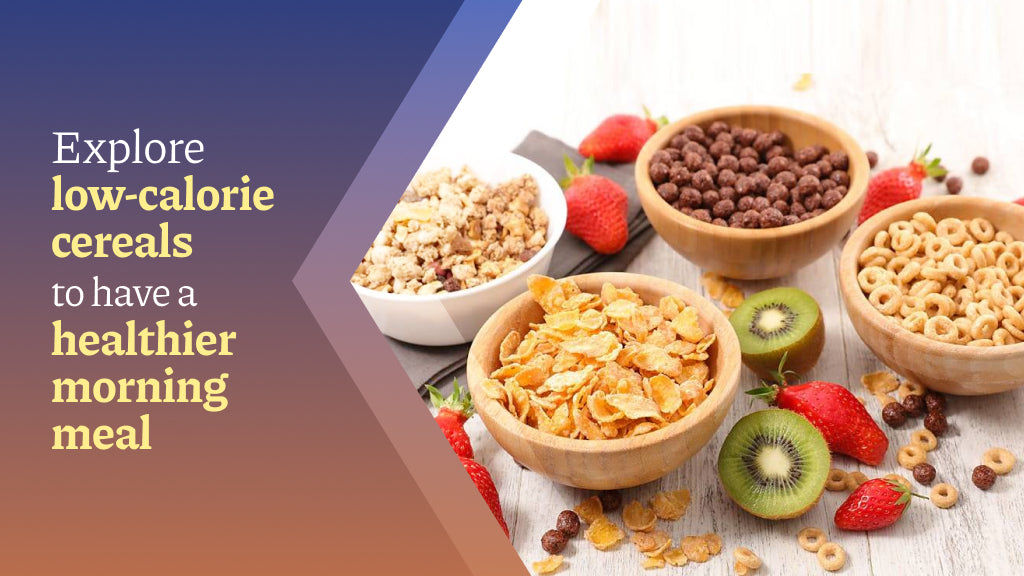The morning meal is often considered the most important of the day, and cereal has long been a popular choice for breakfast. The lowest-calorie cereal offers a quick, convenient, and satisfying way to start your day, but not all cereals are created equal regarding calorie content.
In this article, we'll explore the world of low-calorie cereals, their benefits, and how you can make the most of your breakfast while keeping your calorie intake in check.
The Importance of a Balanced Breakfast
Before delving into low-calorie cereals, it's important to understand why breakfast is crucial for overall health. A well-balanced breakfast can set the tone for your day, providing essential nutrients, energy, and focus. Skipping breakfast can lead to overeating later in the day, lower energy levels, and reduced cognitive function.
Choosing the right low-calorie cereal options allows you to enjoy a lighter breakfast that doesn't compromise on taste or nutrition.
What Are Low-Calorie Cereals?
Low-calorie cereals are breakfast options designed to be lower in calories than traditional, sugary cereals. They often focus on whole grains and fiber while minimizing added sugars and fats. These cereals can help you maintain a healthy weight and support your dietary goals.
Here are some key characteristics of low-calorie cereals:
1: High Fiber Content: Low-calorie cereals are typically rich in dietary fiber, which aids in digestion, helps you feel fuller for longer, and can contribute to a healthy gut.
2: Whole Grains: They are usually made from whole grains like oats, wheat, or bran, which provide sustained energy and essential nutrients.
3: Low-Added Sugar: Low-calorie cereals contain minimal added sugars, making them a healthier choice compared to sweetened cereals, which can cause blood sugar spikes and crashes.
4: Reduced Fats: These cereals often have minimal added fats, keeping the calorie count lower while providing essential nutrients.
5: Balanced Nutrient Profile: They offer a balanced blend of nutrients, including vitamins and minerals, to support overall health.
The Benefits of Low-Calorie Cereals
1: Weight Management: Choosing low-calorie cereals can be an effective strategy for managing or losing weight. These cereals provide the energy you need to start your day without excess calories.
2: Better Nutrient Intake: Low-calorie cereals typically contain a good mix of essential nutrients, such as vitamins, minerals, and fiber. Starting your day with these cereals ensures you get key nutrients.
3: Sustained Energy: Whole grains and fiber in low-calorie cereals release energy slowly, helping you maintain stable energy levels throughout the morning.
4: Improved Digestion: The high fiber content in these cereals supports healthy digestion and can help prevent constipation.
5: Reduced Sugar Intake: Opting for low-calorie cereals means you'll consume less added sugar, which can contribute to various health issues, including obesity and diabetes.
Now that you understand the benefits of low-calorie cereals let's explore some of the delicious options available.
Low-Calorie Cereal Options
1: Oatmeal: Oatmeal is a classic low-calorie cereal that is nutritious and versatile. A serving of plain, steel-cut oats or rolled oats contains approximately 150 calories and is rich in fiber, vitamins, and minerals. Top it with fresh fruit, a sprinkle of nuts, and a dash of cinnamon for added flavor.
2: Bran Cereal: Bran cereals are excellent low-calorie choices, such as bran flakes or bran buds. A typical serving contains around 80-120 calories and is loaded with fiber to keep you full and satisfied.
3: Wheat Cereals: Whole wheat cereal options are rich in whole grains and fiber. They provide around 70-100 calories per serving and are great for those looking to maintain a lower calorie intake.
4: Rice Cakes: While not a traditional cereal, rice cakes can be a crunchy and low-calorie option for breakfast. A couple of rice cakes provide around 35-50 calories, and you can top them with peanut butter, almond butter, or fruit for extra flavor.
5: Corn Flakes: Corn flakes are a classic low-calorie cereal, offering roughly 100 calories per serving. Pair them with skim milk and fresh berries for a wholesome and filling breakfast.
6: Granola: Opt for low-fat or low-sugar granola options to keep the calorie count in check. A 1/4 cup serving typically contains 80-100 calories and can be enjoyed with yogurt or milk.
7: Rye Flakes: Rye flakes are another nutritious choice, with around 100 calories per serving. They are high in fiber and have a unique flavor that can be enhanced with toppings like dried fruits or nuts.
8: Quinoa Cereal: Quinoa cereal is a protein-rich alternative with approximately 120-150 calories per serving. This cereal provides a complete protein source for muscle repair and overall health.
Conclusion
Low-calorie cereals are a fantastic option for a lighter, healthier breakfast. They offer the convenience and satisfaction of a traditional cereal while providing the benefits of a lower calorie intake. With a wide range of low-calorie cereal options, you can easily find one that suits your taste preferences and dietary goals.
Starting your day with a balanced, low-calorie breakfast sets you on the right path to maintaining a healthy weight and supporting overall well-being. So, dive into the world of low-calorie cereals and discover a lighter way to begin your day.

